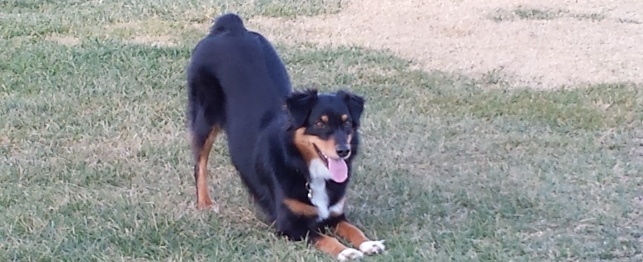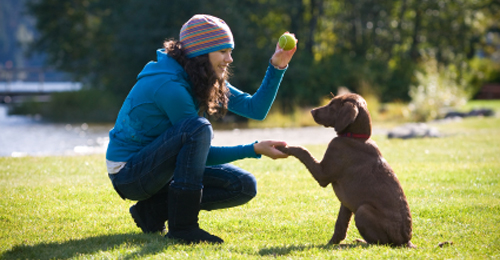Dogs today are actually a very important part of our lives. Sometimes they will get over excited by playing a bit too rough which in turn can sometimes be mistaken for aggression. Getting this behaviour under control while they are young is really important.
As soon as you bring that puppy home is actually when you ought to start to train so any bad behaviours can ideally be prevented. Puppies love to nibble which is ok when they are young, but if you let them continue it can become dangerous when they are full grown and decide maybe to gnaw on your leg. When that adorable puppy matures into a 80 pound dog that nibbling isn't going to be so nice.
Teaching your puppy just what it can chew on and what it needs to leave alone is vital. He likewise needs to learn where he can go to relieve himself, how to properly go walking on a leash etc. When you begin the training at a young age you are likely to avoid just about any bad habits before they're able to start.
When you start to train your new puppy you can either make it a lot of fun or you can make it out to certainly be a tiresome chore. The way in which approach it will make the world of difference, especially for your puppy. Training used to involve reward and punishment, now most training is through positive reinforcement. With the help of positive reinforcement whenever your puppy behaves properly his is praised or offered treats or both. When rewarding your puppy it is a good idea to display a lot of enthusiasm. The more enthusiastic you are the more your puppy will thrive.
When making use of positive reinforcements, your puppy will quickly determine what conduct will win him your praise or possibly a treat. Most puppies and also dogs appreciate treats so that is why treats are often used when training as they are a good motivator.
What do you do when your puppy doesn't obey a command when you give him one? Well one thing which you don't want to implement is to reprimand your puppy by hitting, slapping or maybe yelling at him. If he is not obeying on a regular basis it just means that you need to work harder because he is not completely sure of the command yet. An illustration of training without force would be if you happen to be training your puppy to sit, instead of pushing him into position, take a treat and hold it above his head and move it back which causes him to look up. As he looks up at the treat he will most times wind up in a sit position. As soon as he is sitting praise him and then give him that tasty treat.
If you do discipline your puppy you will simply befuddle him and he will begin to doubt you. This is not the type of relationship you want with your puppy.
When training your puppy it is best to steer clear of unintentionally training some bad behavior. What might appear cute as a puppy is usually totally unacceptable as an adult dog. An case in point could very well be jumping. As a small puppy jumping up on you is certainly no big problem, if however a 80 to 90 pound dog jumps up on you he would likely harm you.
Barking is yet another bad conduct that we tend to help generate. All dogs bark so it does not appear to be that bad to begin with. But once the dog continues to bark it turns into a problem.
It becomes more of a problem since the majority of people are likely to yell at their dogs to make an effort to get them to shout. Once you holler at your dog he considers it as you barking in addition to joining in on the fun. Your yelling is actually barking to him, so this really is not the approach to take.
To end this bad behaviour you must overlook it and once he ceases barking praise as well as reward.
So remember over time your puppy will react considerably better to positive reinforcement. Adhering to positive reinforcements will allow you to gain a properly trained dog that has a great bond alongside you. There's nothing better than your four-legged friend when he is properly trained.

 How to Balance Your Pets Play and Relaxation
How to Balance Your Pets Play and Relaxation
How to Balance Your Pets Play and Relaxation
How to Balance Your Pets Play and Relaxation
 MORE Games That Delight Dogs
MORE Games That Delight Dogs
MORE Games That Delight Dogs
MORE Games That Delight Dogs
 Playing Charades with Your Dog
Playing Charades with Your Dog
Playing Charades with Your Dog
Playing Charades with Your Dog
 Secrets To German Shepherd Coaching
Keep the courses sessions short but often. When things lose
Secrets To German Shepherd Coaching
Keep the courses sessions short but often. When things lose
 Games for Dogs: Bobbing for Biscuits
Games for Dogs: Bobbing for Biscuits
Games for Dogs: Bobbing for Biscuits
Games for Dogs: Bobbing for Biscuits